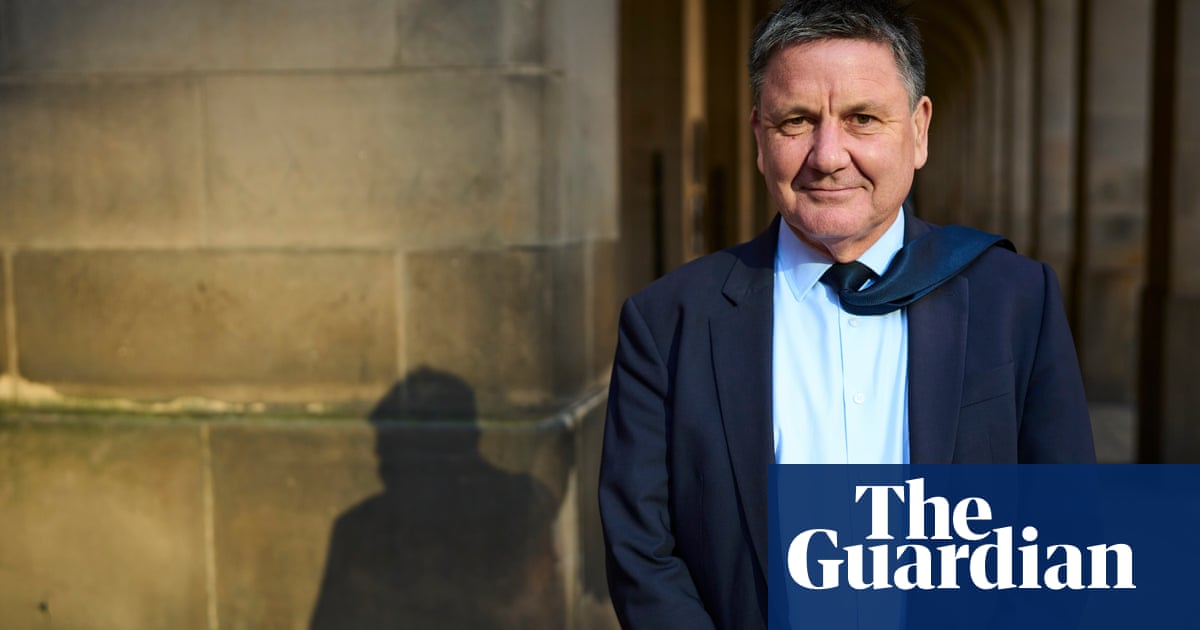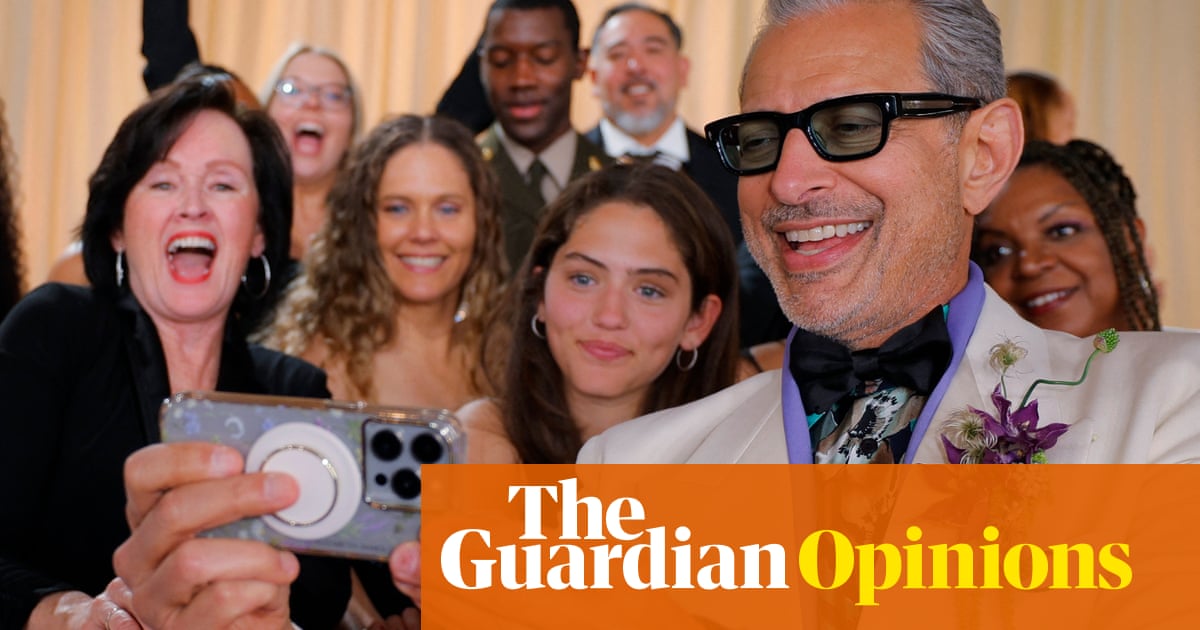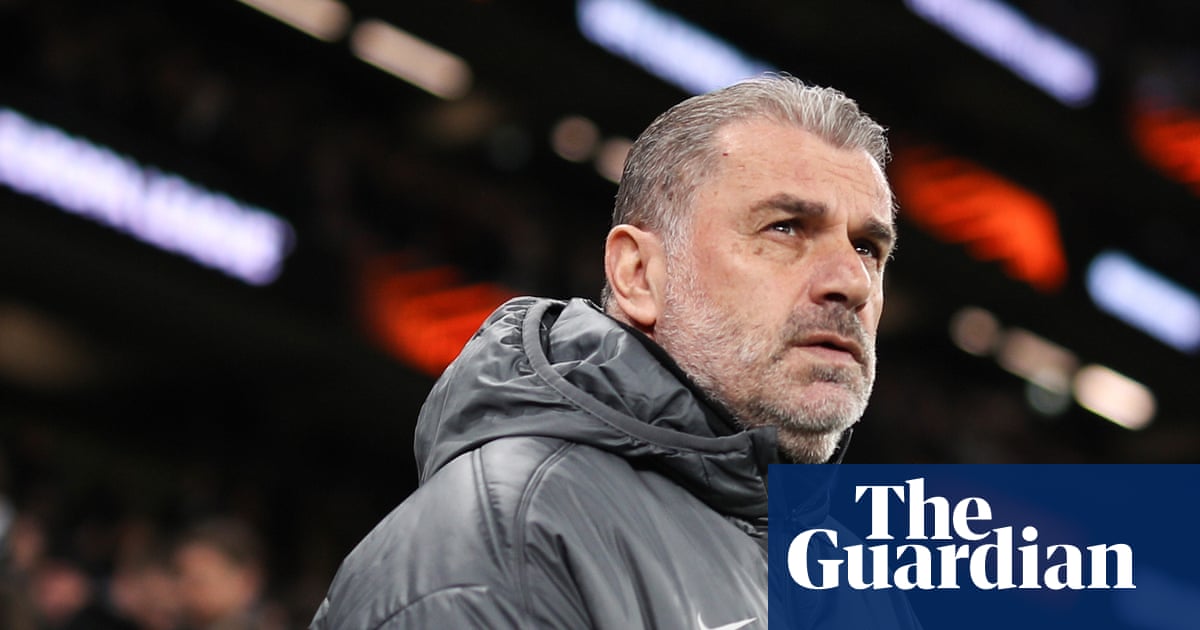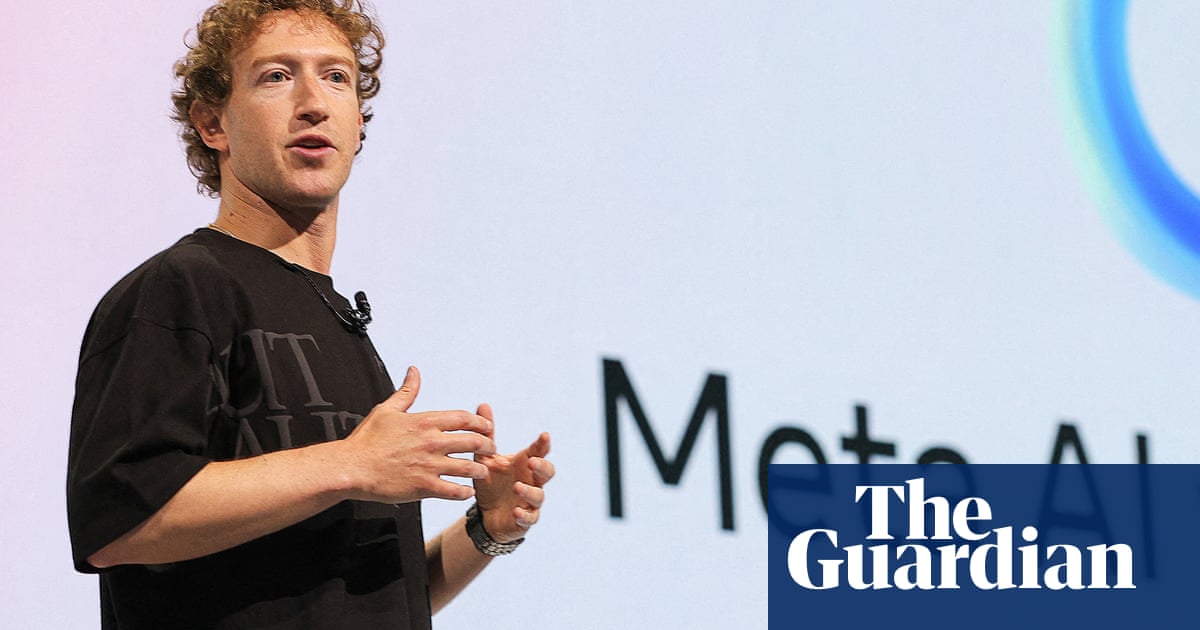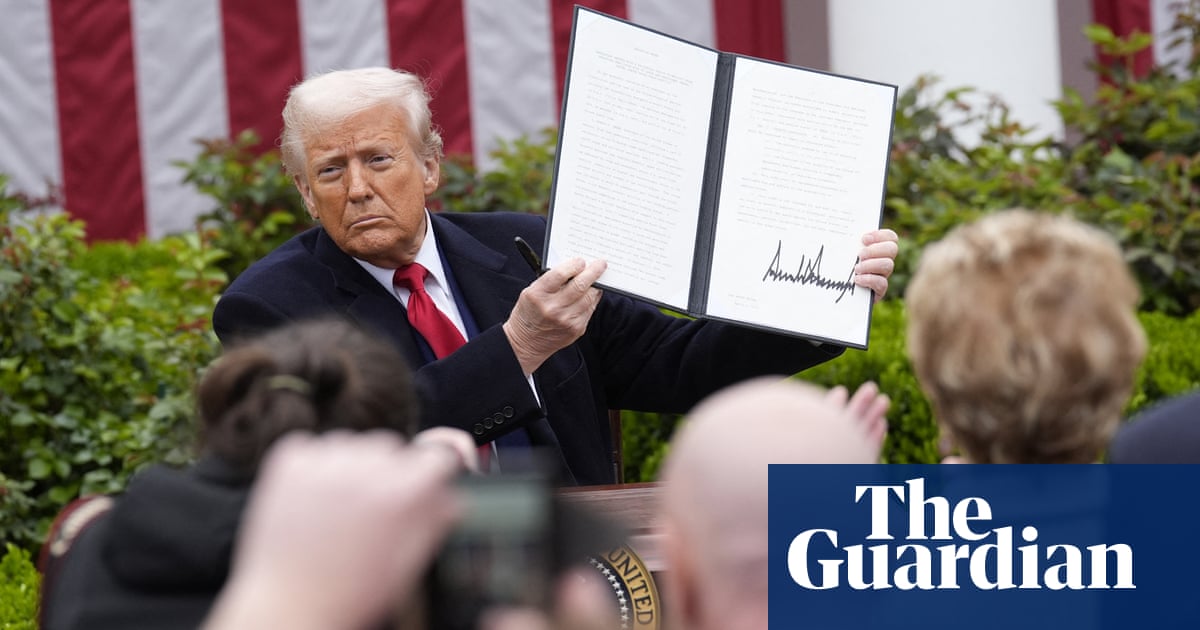Rami Malek, in one graceful sweep, lifts the food delivery bags from an assistant and holds open the door of the photographic studio. He showers the room with greetings, asking names, responding to questions: he’s doing good, thanks; his Thanksgiving was good, thanks, his partner (actor Emma Corrin) threw a surprise dinner for him, trimmings and all, and he was blown away. He shakes hands with the crew, jokes about the music, apologises for being late. His fault, he maintains. But there’s something else. In all these small interactions, Malek is quick to flip focus on to the other person: no, but how are they? How is their Sunday? I wonder as I watch him, is this real? Is this who he is? I’d read that he liked the way Tom Hanks is attentive to all those he works with. That Malek learned this in 2010 while working on The Pacific, the second world war miniseries Hanks co-produced.
Earlier, when we met in a cafe in east London, he revealed as he dropped his leather holdall and shed his jacket that he had done almost as much reading on me as I had on him. “I hope that’s OK. I mean, you investigated me,” he said. This was unnerving. First, because actors don’t care about interviewers, yet here he was giving feedback on my work, and, second, because it must have been so dull. Unlike Malek, 43, I have not starred in any Emmy-winning TV series, like Mr Robot (2015-19). Or received an Oscar for my portrayal of Freddie Mercury in Bohemian Rhapsody (2018), or played the supervillain who killed Daniel Craig’s James Bond in No Time to Die (2021). In the first four months of this year alone, he will star as Oedipus at London’s Old Vic theatre and in the blockbuster thriller The Amateur, which he also co-produced.
“But, I mean, you’ve lived a life,” he insists now. He has a way of speaking that sounds as if his jaw is wired. “You have accomplishments, at such a, um, young age.” I laugh. He pulls in his bottom lip, exaggerating his pout as he suppresses a smile of his own. “But no, come on,” he tries. His point is that everyone is worthy of attention. After all, “How do you measure accomplishment?” I say something about being slowed down by kids, and he leaps on this, asking how all that works, balancing life and career, etc. Then, “Wait,” he says, fixing me with those oversized grey eyes, “I shouldn’t get too personal because that allows you to get too personal, right?”

And here we are. Malek, God bless him, does not love the part of fame that requires him to disclose details of his life in exchange for publicity. He is as awkward as when you’ve seen him interviewed, for example on Graham Norton on New Year’s Eve (where he appeared as if flung from outer space). Deflection is one weapon he uses. Another is evasion. He goes off on tangents, and tangents of tangents, so some answers end up completely unmoored from the question and floating towards the horizon. His conversational style could be summed up as verbal skidding with a look of panic on his face. But he’s funny. When I probe his background – he grew up in California, but his parents were originally from Cairo – he says: “What is this piece, My Egyptian Mother?” And when he fears he’s revealed too much, he leans into the Dictaphone, and says in his languid drawl: “That’s off the record. Off the record, off the record, off the record.”
Of course, Malek is best known for his Mercury, a work of art so natural most were surprised the choice to cast him had ever been controversial. As he tells it, he sat in front of the producers, said he couldn’t play the piano, wasn’t sure he could sing and, “you know, have a very unusual way of dancing”. This disarming impression belied his perfectionism. Before the project was greenlit, Malek had made prosthetic teeth like Mercury’s so he could pop them in to practise. He studied hours of tapes, worked with a movement coach, hired a dialect specialist to dissect the Queen frontman’s very specific accent (Mercury’s parents were Gujarati Indian, and he grew up in Zanzibar before moving to the UK).
Malek’s performance transformed a film plagued by setbacks into a £700m worldwide smash, the highest-grossing musical biopic of all time. In his Academy Awards acceptance speech for best actor, he made reference to the fact that he, too, was the son of immigrants, that his own younger self, curly haired “Bubba Rami”, struggled “with his identity, trying to figure himself out”. Freddie, as Malek calls him still, left an indelible mark: the way he lived his life, he says, “I find liberating”.
He orders green tea and says no thank you to breakfast because he’s already had his daily croissant, “my guilty pleasure”. This morning, we’ve met to talk about Oedipus. Malek doesn’t want to give away too much about this adaptation, written by Ella Hickson, and co-directed by choreographer Hofesh Shechter, which means he has been in intense rehearsals in a dance studio in west London. This may account for his wiry physique in his jeans, black T-shirt and white-laced Dr Martens. He tells me his great-great-grandfather was Greek, and that he loved the Greeks in college: “I mean, I loved Shakespeare, but for some reason I gravitated more to the Greeks. Perhaps I was looking for something that wasn’t the obvious.”

He once told talkshow host Jimmy Kimmel how he switched places with his identical twin, Sami, now an English teacher, and performed a Greek monologue to get him crucial points he needed to pass his degree. “We were troublemakers as kids. We did some bad stuff.” The switch was successful, though tense. His brother’s teacher looked at him, “kind of accusatorially … She’s like, ‘Can you come outside?’ And she goes, ‘How did you learn how to do that?’ And I go, ‘It’s just a hobby.’”
That was Creon in Antigone, he says now. But Oedipus he thinks about all the time. “No, really, I do.” He’s always wanted to investigate the character: the king of Thebes, predetermined to murder his father, marry his mother and ultimately blind himself in self-punishment. He is fascinated by the story’s place in society; Freud’s use of it in analysis. “We can be repulsed by tragedy and also extremely intrigued by it,” says Malek. He is interested in what the play says about identity and instinct. Oedipus was “blind” to his fate before he blinded himself, he says. “He thinks he can compensate with the rest of his senses heightened … in a hyperintuitive way.”
Malek’s own instincts were honed growing up in Sherman Oaks, Los Angeles. His parents, Said and Nelly, were Coptic Orthodox who moved to the US in 1978 with his older sister, Yasmine, now an A&E doctor. The family spoke Arabic at home. “I didn’t speak English until I was five or six,” Malek says. He recalls Sami coming back from visiting an aunt in Detroit, “with two words of English, ‘yes’ and ‘no’. I was infuriated that he was touting this ability to be bilingual.”
Home was a two-bedroom apartment, infused with banter (nakkit in Arabic, he tells me) and the spice of his parents’ cooking. His father brought meat from the butcher and taught the kids how to cut against the grain. “Very young, we were wielding knives, to the point where that happened … ” – he shows me a scar between his thumb and forefinger. “My father loved cinema. We would watch everything from The Dirty Dozen to The Great Escape. I remember watching Kubrick’s The Shining far too young.”

But Said was also strict. The children were not allowed sleepovers. “‘Why do you want another person to come over and sleep in your bed?’ he would ask. ‘That should be your bed.’
“And there were other things: ‘You are not going out past this hour’, ‘No one’s invited into the home.’ The idea of hanging a poster of Michael Jordan in my room – which I had to beg them to do one day – was as much as I could get away with. Tacking anything into a pristine wall? ‘This is the house that we have invested so much in! Why would you want to cover it in anything?’ My father always said, ‘Be a fan. Don’t be a fanatic.’”
He says his father embraced the US to a degree, “but there was also a definite … I won’t say alienating yourself from certain aspects of the culture, but definitely not accepting them.”
It’s difficult to rid yourself of that sense of difference. “I don’t know how you ever get over that. I’m what’s called ‘white passing’, but I have very distinctive features, and we definitely didn’t fit in.” He and Sami developed finely tuned antennae; felt they could see an agenda a mile off. “We just had an uncanny way of sensing people.” He relates how another actor recently observed this to Corrin: “‘From the second Rami walks in the room, he is assessing every single situation, how it will affect him, or others, the domino effect of it all.’ I don’t know if it’s a blessing or a curse,” he adds. “Sometimes I find it detrimental.” I ask if he can turn it off. “No. You can’t help it.”
While their father worked in insurance and as a travel agent, their mother saved every cent she earned from working for 25 years for a family in real estate for her children’s education. “The school system in Los Angeles was not great. She would handwrite these long letters in blue fountain pen explaining our situation. She’d say, ‘I’m going to give my kids every opportunity possible.’” His voice thickens. “I would hear stories about her being pregnant with my brother and me, and taking three buses – three different buses! – to get to work and back.”
Of course, LA in the 90s was sketchy. There were the Rodney King riots of 1992 and in 1994 an earthquake that caused “the walls of my house to fall down”. There was gang warfare. “We were told we couldn’t wear red or blue at school because of the Crips and the Bloods.”
They secured places at the private Notre Dame high school (Kirsten Dunst was in the year below). To help with the fees, the Malek boys worked on the school grounds in the holidays. “We ended up digging the sprinkler system for our high school football pitch over a summer just so we could get some relief in terms of the cost of going to school.”
Was he a good student? He gives me a knowing smile. “I was resourceful.” He tells how he and Sami would intercept their report cards while the ink was still wet enough to erase the Bs and Cs, and then perform an elaborate forgery job using their sister’s report card, which was straight As. “It was more about the danger of things. Are we going to be able to do it in time?” They would take leftover bagels from a friend’s workplace at night, toast them for staff at school in the morning: “Anything to ingratiate ourselves with our teachers.”

I ask him exactly how rebellious he and his brother were in their teens and 20s. “Extremely. We did some very naughty, naughty things.”
Tell me.
“I can’t. I can’t.”
I tell him some rebellious things my kids have done.
“You think that’s rebellious? You have no idea what my mum has been through. As much as it would be good fun to tell you, it’ll go in the news and I probably won’t be allowed to enter this country.” He laughs, adding: “It’s difficult enough travelling. Don’t make it harder.” He means being Middle Eastern in an airport. For a long time, he says, his name – Rami Said Malek – seemed to trigger a security alert. “I started to think, ‘What is happening?’ every time I tried to enter a country. These days, there might be a moment. Then they’ll go, ‘Nah, that’s the guy from Bohemian Rhapsody. Let him through.’”
On the theme of mistaken identity, he tells me another story. “I got thrown on the bonnet of an LAPD cop car because someone had robbed a liquor store and stolen a woman’s bag. They said the [thief] was of Latin descent and, ‘You fit the description.’ I remember how hot that engine was, they must have been racing over there and it was almost burning my hands. My friend, who was Caucasian, was clever enough to go, ‘Actually, sir, he’s Egyptian. Not Latin.’ I remember laughing on the cop car, thinking, ‘OK, this is a very precarious situation. I may well be going to jail for something I’ve not done.’”
after newsletter promotion
He had thoughts of going into politics or becoming a journalist. “Then I thought I could never do what you do,” he says. He slides in a Tom Hanks-like “so thank you for your work”. His father wanted him to be a lawyer, however, so he joined the debate team, and it was there that his flair for drama was discovered. Initially his parents were sceptical about his choice of acting. They had transplanted themselves 7,500 miles to give their children a better life – what was this? “But then my father saw me stuffing headshots into manila envelopes day in day out, and he said [to my mother], ‘My son is tenacious.’ He had a great vocabulary. I could feel the wind at my back with that statement. There was a sense of needing to prove yourself in a foreign country.”
In the years trying to build a career post-college, he supplemented bit-part acting with a pizza delivery job and a stint in a falafel shop. This being a post-9/11 United States, he found he was offered parts playing terrorists, the kind of thing where he would be discovered in the boot of a car. But there were bright spots: a pharaoh in Night at the Museum (2006), a vampire in The Twilight Saga: Breaking Dawn – Part 2 (2012). When he took the call for a guest spot on Gilmore Girls (2004), he pretended he was his agent because he didn’t have one.
By coincidence, two Oedipus productions have come to London’s West End in quick succession. Malek opted not to see Mark Strong in the role at the Wyndham, remembering advice he received in college when he was playing John Proctor in The Crucible shortly after the film starring Daniel Day-Lewis came out. “The director was smart enough to say, ‘Don’t watch that’, and that still exists for me in the back of my mind: ‘Don’t watch the other version.’ Because it’s like reading critics or watching dailies back. You’re either going to appreciate your work and possibly won’t make as much effort, or lose confidence that you can’t regain.” Plus: “If you watch something that’s brilliant, it’s very hard to replicate that in any way.”

That’s not to say he hasn’t learned from his peers over the years, and he has worked with some of Hollywood’s finest – among them Joaquin Phoenix, Cillian Murphy, Robert Downey Jr, Christian Slater. He tells me about running after Philip Seymour Hoffman to seek his advice on the set of The Master in 2012. Malek had been doing a scene where he had to provoke Joaquin Phoenix, and he had tried again and again, but wasn’t quite getting what the director was looking for. He caught up with Hoffman at his trailer. “I said, ‘Sir, do you mind if I ask you a question?’ And [Hoffman] turned and said, ‘Go on.’
“I was like, ‘What do I do? I feel like I’m missing a beat or a tone. I’m not quite giving Paul [Thomas Anderson] what he needs.’
“He goes, ‘Just make the character Joaquin is playing as uncomfortable as you possibly can.’”
Watching Hoffman was instructive, even when Malek came up against the sharp edge of his method acting. One afternoon, Malek was tasked with bringing the late actor back to set from the middle of the desert. He says he was sitting behind the steering wheel when Hoffman got in and growled at him, “Drive.” Malek was taken aback. “I gave him a look like, ‘What the fuck?’ And he snapped out of it and said, ‘And how was your day?’ I guess in his role as the Master, there had to be the sense that I would do his bidding.”
The closest Malek has come to such immersion was for a role as a US marine in The Pacific, the Hanks and Steven Spielberg companion to Band of Brothers. Malek went to military boot camp, dropped to 6% body fat, and each night at home imagined himself in a foxhole. “I didn’t want to let anyone down – Hanks or Spielberg, or, more importantly, the men who served at that time. I thought I just had to give every second of it.” For a while he even thought he might want to enlist. “It was this odd juxtaposition of wanting to do the creative thing, but at the same time wanting to serve, because of feeling the smallest sense of how much of a sacrifice that was.” He laughs. “I think I went a bit too deep and it did take its toll.” He went through an existential crisis, felt he couldn’t cope and moved briefly to Argentina. He concludes: “That was jarring enough to make me think, ‘No, I don’t want to be a method actor.’”
His approach now is meticulous research and preparation. He sought the advice of a psychiatrist when playing schizophrenic Elliot in Mr Robot, and spent hours on the phone dismantling the various ways the character’s issues might manifest. Taking things apart is one way he learns. “I once took apart all of Leonard Cohen’s songs, took my favourite lines and put them together to see if they would work as a whole. And, weirdly, it turned out all right.” He wishes he had kept a copy, but he gave it to Charlie Hunnam who he worked with on Papillon (2018). He frowns: “I hope he’s held on to it.”
Malek’s father died in 2006, and the children look out for their mother, who they call Nuna, now in her late 70s. He had created a trip for the family to go back to Egypt last autumn “and revisit all of our roots. Sadly, work got in the way.” Instead, mother and son went on a trip up the coast, which she loved. “‘It does remind me of Alexandria,’” she told him, “but she’ll still look at everything and be like, ‘That’s far too expensive, habibi.’” He starts telling me about the enormous affection he has for her, then parodies himself. “That is obviously Freudian. All roads lead to Thebes! But, yeah, I’m very protective of her.”

He’s anxious about the future of a Donald Trump America, the stirring of animosity towards immigrants. He read Barack Obama’s The Audacity of Hope and Dreams from My Father. “The idea that a man with a father from Kenya and a mother from Kansas could become president of the United States, it was one of the most hopeful moments from the story of the American dream. That’s been flipped on its head. I always look at situations like this and just hope that it brings out the absolute best in us.
“And, yeah, at times I do feel a bit sad that [my parents] had to make this extraordinary pilgrimage to America to investigate the possibilities. And now [my mother is] dealing with, perhaps, a certain sense of repression that they may not have known had they not moved. If that makes sense.”
Although he owns two bungalows in Laurel Canyon, one jointly with Sami, Malek spends most of his time in London and some in Margate, Kent, with Corrin (who uses they/them pronouns). He says he stayed in last night to watch Dr Strangelove because Corrin hadn’t seen it before, then checks himself and reminds me that he doesn’t want to talk about his personal life. But he can’t help it. He mentions “Em”, or “my partner” or “that person” throughout. “That person” is “fascinating”, he confides. When I describe Corrin (who I interviewed for this magazine) as smart and quirky, he adds, with a half-smile and hint of slush: “We like quirky.”
He orders more tea. He has consumed more of the stuff while living in the UK than he ever did in his life before. Daunt Books, he loves, and the Barbican; he’s a Radio 4 enthusiast. He describes listening to the Shipping Forecast at midnight. “All the words are nautical and practical – it feels like it’s guiding you, even if you don’t know what they mean.”

He’s the kind of person to get excited about little discoveries, like the Middle Eastern grocery store he stumbled on in Acton. “There was an aisle of just grape leaves. And I heard all these different versions of Arabic. I get recognised quite a bit, but I didn’t there. No one bothered me in that supermarket.” Both comforting and “confounding”. He’s also a Lime-bike enthusiast. He has bought an A‑Z (he calls it “the knowledge”) because he loves maps; he always won the geography prize at school.
Do you know what he doesn’t love? Devices. He is like your grandparents, tutting when he sees a phone on the table. Nor can he speed-text. “I think, ‘Is it me? Is it a deficiency that I’m so slow?’ Then you have the phone ripped out of your hand because you’re not fast enough.” He mimes a tussle with Corrin: “‘Give it to me.’ ‘No, this is mine. I will handle it; slowly, patiently.’”
It’s time for the shoot. He checks I have everything, and as we walk down the street he switches sides, so he’s closest to traffic. He asks the names of my kids. Apologises again that I’ve had to come out on a Sunday.
Would he get a brick phone? “Forget the brick, take me back to a rotary phone. I am very much a phone call human. My father used to make me speak to relatives in Egypt, and it was sweet. This will age me – I am nostalgic for putting a coin into the public pay phone.” The very worst thing about devices is they make you accessible. “I don’t want that. Perhaps that reverts back to, ‘No strangers are coming over for sleepovers, Rami.’” He smiles. “I love my anonymity – what’s left of it.”

.png) 2 months ago
34
2 months ago
34



